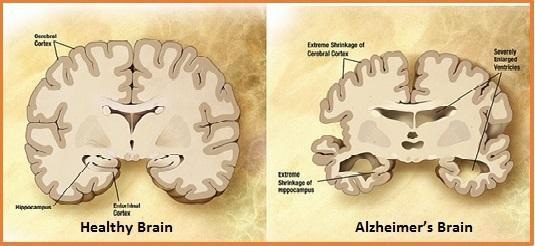 According to specialists, Alzheimer’s starts ravaging the brain quietly more than a decade before the first symptoms appear. Overweight people or people who are obese during their midlife years could be more vulnerable to developing Alzheimer’s disease.
According to specialists, Alzheimer’s starts ravaging the brain quietly more than a decade before the first symptoms appear. Overweight people or people who are obese during their midlife years could be more vulnerable to developing Alzheimer’s disease.
A new research study performed by scientists from the National Institutes of Health reveals that midlife obesity can lead to developing Alzheimer’s disease, and may also instigate an earlier onset of the illness.
The study found that, on average, Alzheimer’s sets in about seven months earlier for each unit increase in body mass index (BMI). The research team studied how much Alzheimer’s patients weighed at the age of 50 while they were still cognitively healthy.
By maintaining a healthy weight at midlife, people are likely to gain a long-lasting protective effect.
In another recent research study on the link between obesity, diabetes and Alzheimer’s, Professor Bettina Platt from the University of Aberdeen said: “Many people are unaware of the relationship between diabetes and Alzheimer’s disease, but the fact is that around 80% of people with Alzheimer’s disease also have some form of diabetes or disturbed glucose metabolism.” This is hugely relevant as Alzheimer’s, in the vast majority of cases, is not inherited, and lifestyle factors and comorbidities must therefore be to blame, just as Type II diabetes is lifestyle-related rather than inherited.
With increased weight, a person is more likely to develop diabetes or high blood pressure and we know that these diseases increase the risk for Alzheimer’s disease. There may be some people, as well, whose increased weight is a sign of cognitive difficulty rather than an effect. Weight increase, for example, could be a sign of apathy, decreased physical activity, and poorer self-care at the beginning of a cognitive decline.
The most relevant advice regarding overweight and Alzheimer’s is that the risk factors we can change have to be addressed in mid-life or even earlier in order to benefit us later on. Proper exercise and a healthy diet are easily accessible tools that can help us reduce the risk not only for Alzheimer’s disease but for many other medical problems as well. When exercise and diet alone don’t work, and weight management requires the help of bariatric surgery, you should speak with your primary care physician and request a free consult with the surgeons at SmartShape Weight Loss Centre through our website.
A healthy lifestyle which includes proper and lifelong weight management can increase the likelihood of optimal aging, prolonged independence, and a greater quality of life.
To request your free consultation with one of our surgeons, visit http://bit.ly/RequestaSmartShapeconsult
